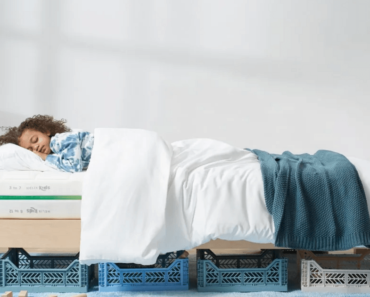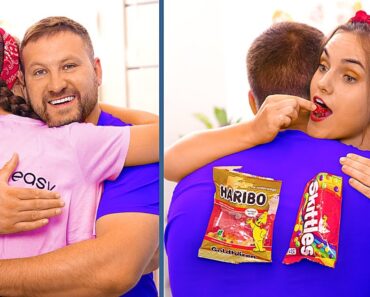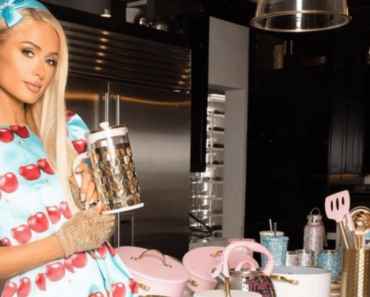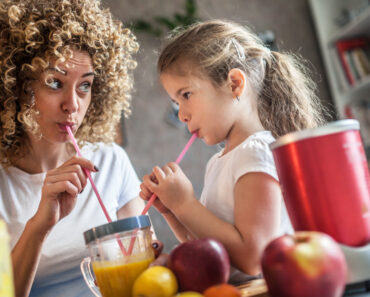As a kid, I was jealous of my non-Indigenous peers whose families had the luxury of not being touched by this traumatic history.
When the news broke that 215 babies were buried on the ancestral lands of the Tk’emlúps te Secwépemc First Nation, on the grounds of a former residential school, a lot of disturbing memories came up for my family. My auntie called me to debrief, sharing her own stories of how these torturous schools and their lasting trauma have become embedded in our own bloodline.
Without a doubt, every Indigenous family on Turtle Island (North America) has had a family member or ancestor attend these schools. Think about that.
With the schools comes the trauma, the abuse, the intergenerational impacts, and the grief.
Residential schools changed our family in a devastating way. As I listened to my auntie speak, I remembered my late mother’s pain, and how often that colonially-caused pain got in the way—and interfered with—my own childhood. It was because of those schools: Family members who were taken to residential schools then brought those toxic behaviours, learned from priests and nuns, into our own family. The cycle continued.
Triggered by this news, childhood memories came back to me. I remembered being six years old, and listening to my mom’s gruesome stories. She would sob, in agony, telling me what had happened to her as a child, due to the intergenerational impacts of those so-called schools.
That was my first time—but definitely not my last time—experiencing vicarious trauma.
I was frequently a witness to my mother’s turmoil, and even became a target for the projections of her pain. Physical, emotional, and verbal abuse became the norm as my mom did the best she could with the resources and tools she had at the time to navigate through her trauma—trauma that had been caused by colonialism.
I felt so much anger towards those schools as a kid. I felt jealousy towards my non-Indigenous peers whose families had the luxury of not being touched by this traumatic history. I remember arguing with kids on the playground about why my people were the way they were.
I craved a healthy, fully healed family.
It was our mothers and aunties—those born in the 1960s and ’70s—who took the first steps in addressing the pain caused by their family members who’d been abused at residential schools. They realized it was time, and they began funnelling it toward healing.
Over the phone, my auntie told me, for the first time, about what happened to her. (She does not want to share the details with everyone, however.) “When I first went to treatment in the ’80’s, I started my healing path from the sexual abuse that happened in my life,” she said. “I started to heal from the intergenerational impacts from residential schools.”
“You are one of the original cycle-breakers,” I told her.
She credits her grandmother—my great-grandmother—for this.
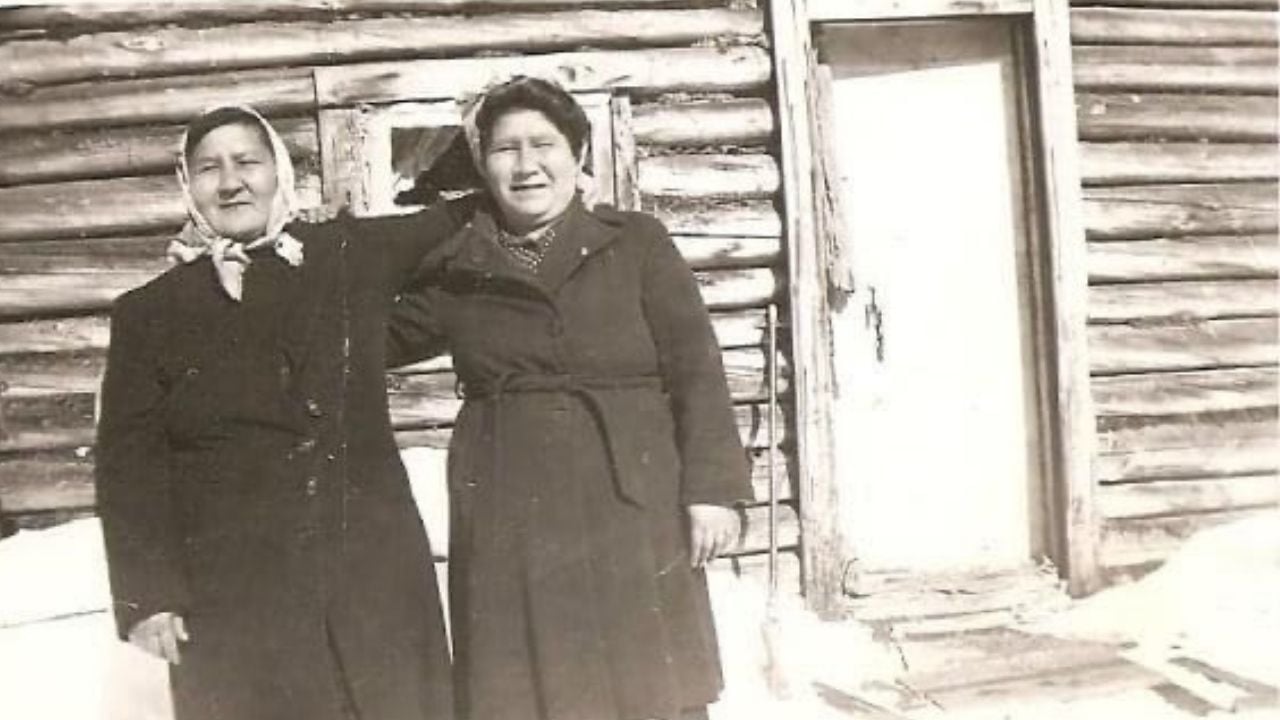
Photo: The author’s great-grandmother, at left. Courtesy of Andrea Landry.
“She was very gentle and loving. I remember going in the bush with her when I was little, and she practiced all of our teachings,” she told me. “She showed me how to put tobacco down when we prayed, how to set and check her nets, and how to drink the rainwater after a thunderstorm to get the medicine that comes with that.”
“That’s what carried me through all of that pain and trauma—that strong sense of being connected to our people. I pray to my grandmother.”
As I listened to my auntie, I caught glimpses of my late mother in my mind: The moments my mother would run out and pray when the thunderbirds came. The times she would share the traditional teachings that escaped the clutches of colonialism and genocide. She would share them with stories of her own gokamis (her grandmother.)
When I was in my twenties, my mother began to equip herself with better coping tools. She would openly cry in front of us, and explain that she was just moving through her emotions. She began to share her family’s stories in more healthy ways. She also taught me from her own mistakes, in a way. Now that I’m a mother, I know how to tell the truth of our family history with my daughter, with developmentally-appropriate language, so as to not cause additional vicarious trauma in our children today.
My late mother made amends with me shortly before she passed away, apologizing for all the pain she carried and projected because of all that was done to our people. For that I am so grateful.
In her absence, it’s my auntie who has taken on the role of a mother and gokamis to my toddler daughter when we visit. She wraps her in love, singing songs and sharing the teachings she does know with genuine adoration.
This is how our aunties and our mothers are the original cycle-breakers. They became the frame of reference for me on how to reclaim our traditions and interrupt the patterns of lasting violence that continue to this day because of those schools. We rely on the teachings from past generations to carry us during the most difficult times.
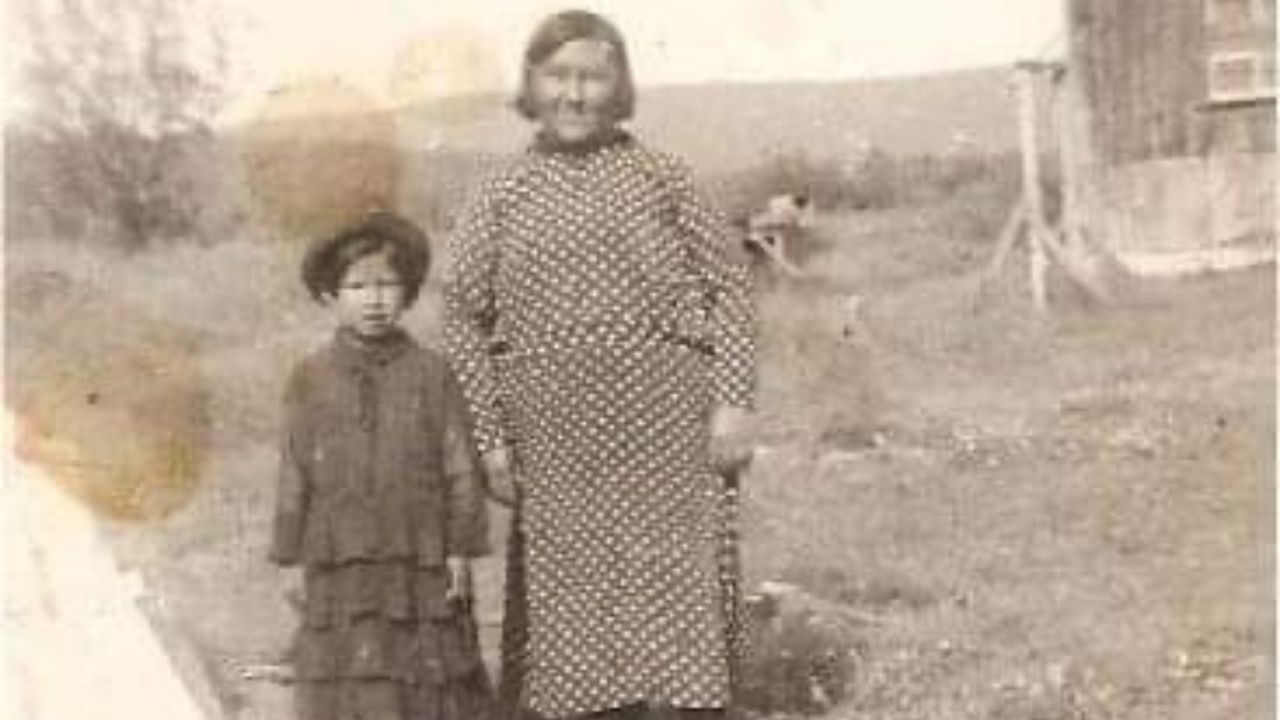
Photo: The author’s grandmother and great-grandmother. Courtesy of Andrea Landry
Now my young daughter, who soaks up knowledge like a sponge, is teaching me how to live life fully immersed in the land of her ancestors, and how to continuously fall in love with our language.
I want all Canadians to know that when my people made treaties with the Crown, the original intent and outcome was never based on the idea that we, as Indigenous nations, would assimilate to the point that we would deem our own political, traditional governance, and kinship systems and customs irrelevant and dissolvable. The treaties created an agreement between Indigenous nations and the Crown, which eventually took the shape of Canada. Somehow, with this came the very false idea that the government had full reign, power and control over Indigenous nations, communities, and families—including the formation of the residential school system. It was created as a means to “kill the Indian in the child,” and ultimately it was an attempt to cause a disruption in our kinship systems so severe that we would never return back to who we are.
But we proved them wrong. We are still here.
My aunties, my daughter and I are following the footsteps of the original cycle-breakers. We are committed to undoing the processes of genocide within our own bloodlines by continuing to raise our children with the traditions, culture, and practices that have been a part of our existence for generations.
